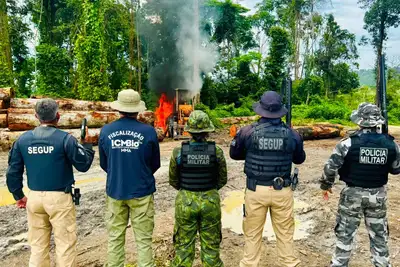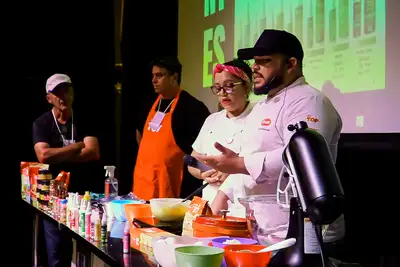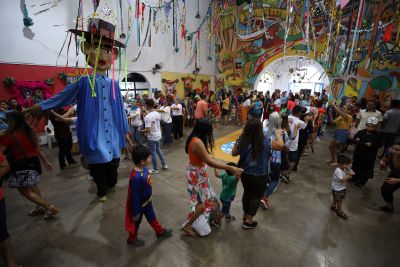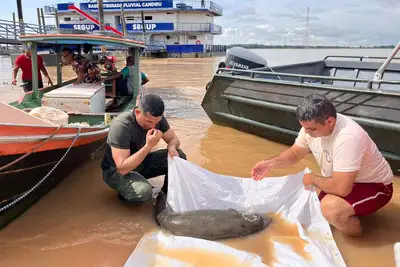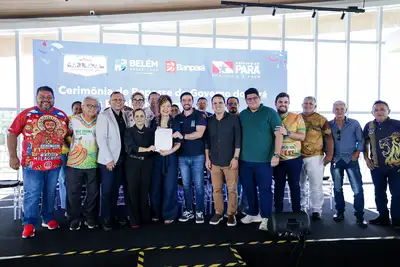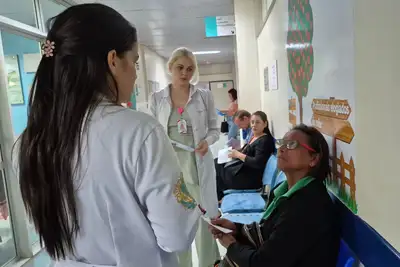Integrated action of state agencies encourages breast milk donation
In the first four months of 2025, 867.5 liters of human milk were collected through the partnership between Santa Casa and the social project Bombeiros da Vida
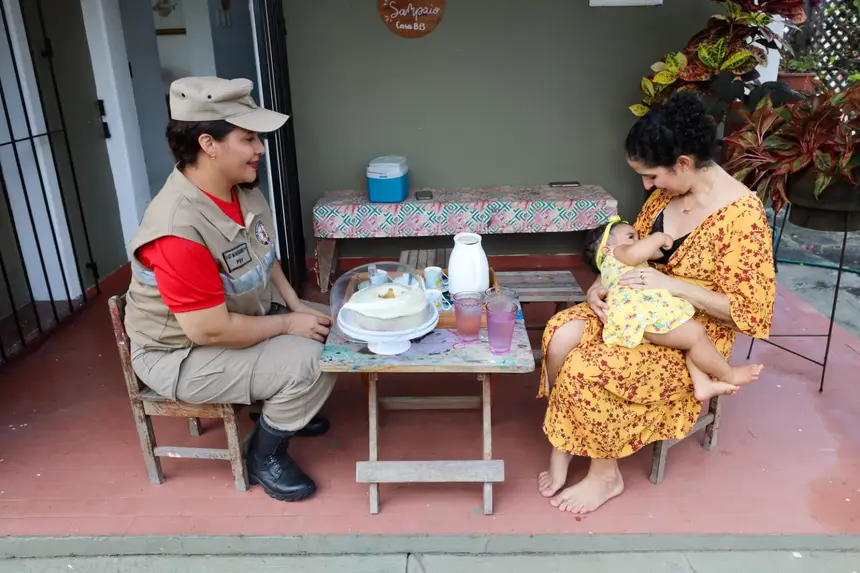
Nutritionist Josiane Pompeu, mother of Laura, 2 years old, understands breast milk as an indispensable source for the first months of life, for healthy growth and a strengthened immune system. Therefore, during the time she was breastfeeding, she became a donor for the Santa Casa de Misericórdia do Pará Foundation.
“This was one of the most emotional experiences of my life. With each bottle I donated, I felt as if I was offering a little hope to every mother who is there anxious, waiting for her premature baby to leave the hospital. So, I knew that my milk was reaching these little ones. It’s a very good feeling of purpose, of true solidarity. Donating milk is a silent gesture; we don’t get applause for it, but it has a huge impact on the life of an entire family,” says Josiane.
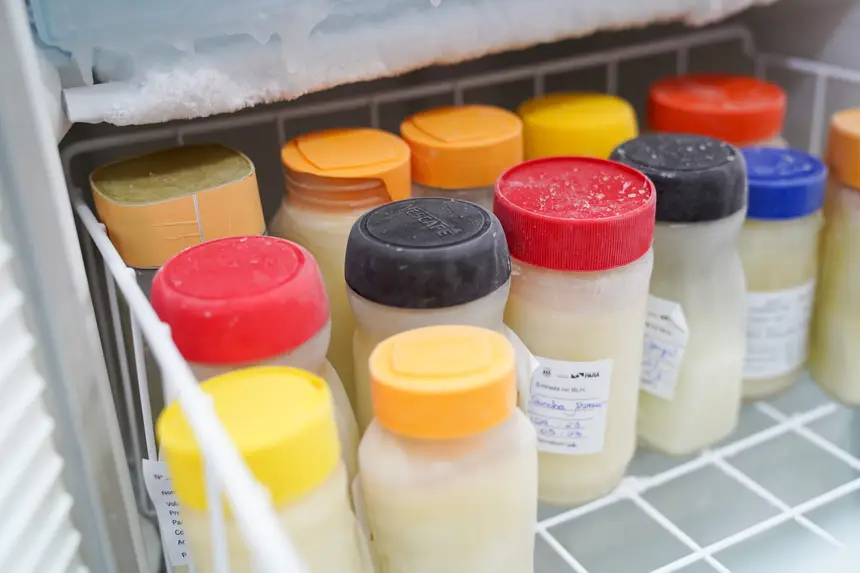
Santa Casa was the first hospital in the Amazon to establish a Human Milk Bank (BLH), through which it permanently carries out activities to support breastfeeding, clinical management of lactation, collection, processing, quality control, and distribution of human milk. The Foundation, in partnership with the Military Fire Brigade of Pará (CBMPA) and the Department of Justice (Seju), works together to encourage, above all, the donation, collection, and distribution of breast milk.
Cynara Souza, manager of the BLH at Santa Casa, emphasizes that donation is a commitment to life and the well-being of future generations, especially regarding the reduction of neonatal mortality. “The slogan of this year’s Human Milk Donation Campaign was defined as a humanitarian gesture that feeds hope and saves lives. Due to its importance for life on the planet, the act of donating human milk is aligned with the third sustainable development goal of the UN 2030 Agenda, which is to 'ensure healthy lives and promote well-being for all at all ages,'” she comments.
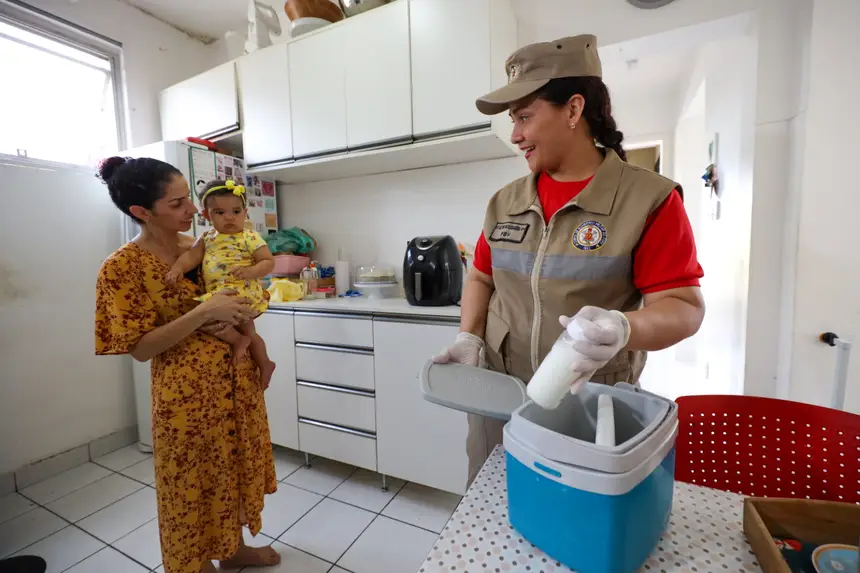
FIREFIGHTERS - The oldest partnership of Santa Casa is with CBMPA, through the social project Bombeiros da Vida, which has 13 military personnel and 9 volunteers who work on registering donors, providing guidance, and collecting donated milk at the donors' homes. The initiative reaches home visits for collection in 55 neighborhoods within the Metropolitan Region of Belém. In 2024, the union of the two state agencies collected 3,100 liters of human milk. In the first four months of 2025, 867.5 liters were collected.
Mothers interested in donating breast milk can contact 'Bombeiros da Vida' through the phone (091) 3251-7212, Instagram @pbv.cbmpa, email projetobombeirosdavida@hotmail.com, or on the website (LINKAR www.bombeiros.pa.gov.br), where it is possible to register, allowing the team to contact the donor.
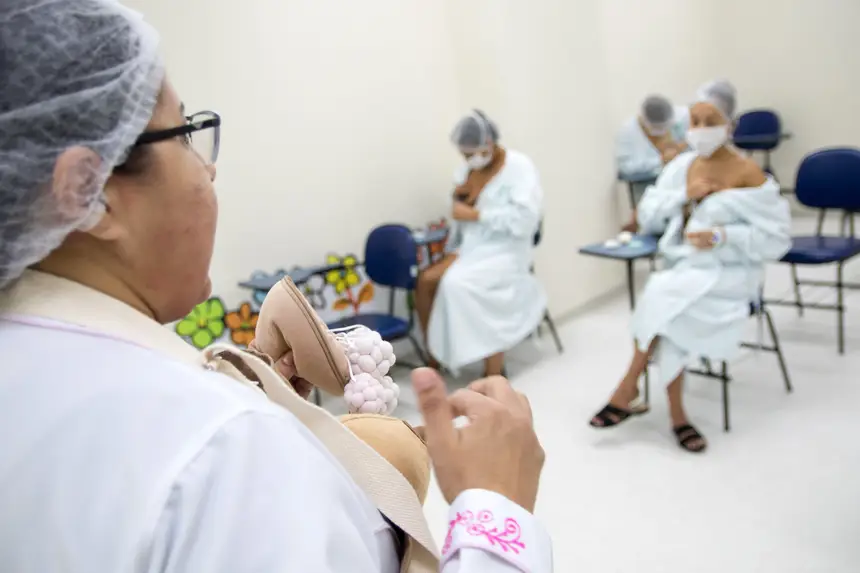
“The home routes carried out by the program are responsible for the majority of the human milk collected for the Santa Casa bank. This milk undergoes analysis and pasteurization to be offered to newborns hospitalized in the hospital. The fact that this collection is done at home, at a time when mothers have difficulty traveling due to having small babies, by an institution that inspires trust to access the homes of donors, makes the project contribute significantly to the supply,” points out Lieutenant Colonel Patrícia Santos, coordinator of social projects at CBMPA.
PARTNERSHIPS - Seju is another state agency integrated into this partnership. The headquarters of the secretariat, located at 28 de Setembro Street, 339 (between Av. Presidente Vargas and Travessa Frei Gil), in Belém, serves as a fixed point for donating jars for milk collection, from 8 AM to 4 PM. Diapers, children's clothing, and basic food baskets are also accepted as donations.
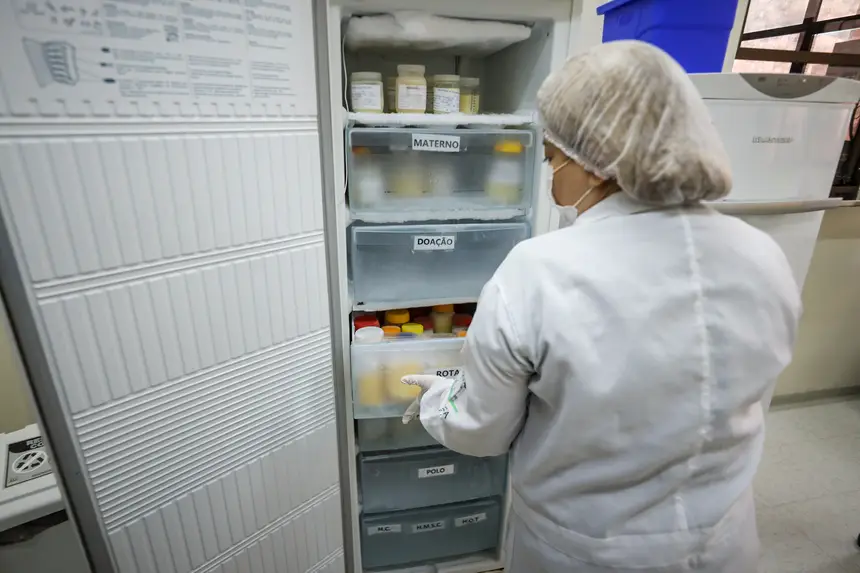
“The collection of jars for milk donation strengthens Seju's partnership with other institutions in supporting health policies. This is part of our work to promote inclusion and social well-being, especially for those in need, helping to build a more supportive society,” highlights Evandro Garla, head of Seju.
The Regional Administration Council and the electricity concessionaire Equatorial are also partners of the State Government in campaigns for donations of glass jars for the storage and processing of milk. In the process of milk collection, the State also counts on the support of the Humanitarian Mission for Milk Collection and Donation from the Assembly of God, which currently has 43 active hubs in Belém and 120 volunteers.


